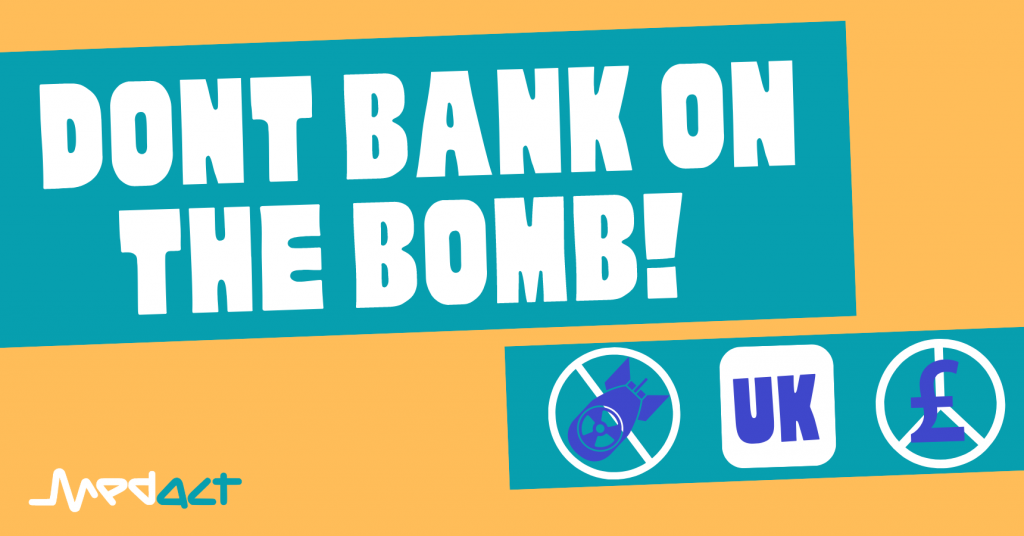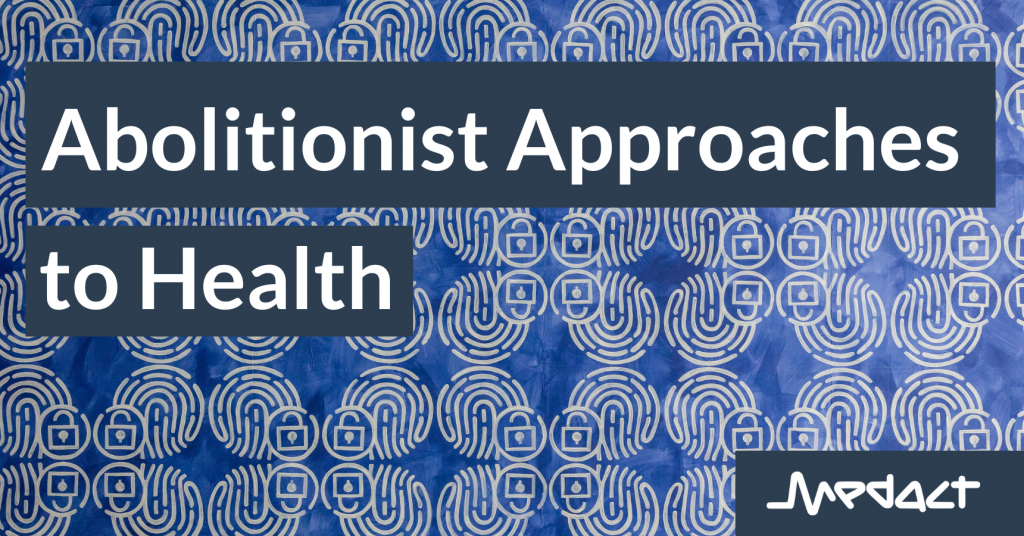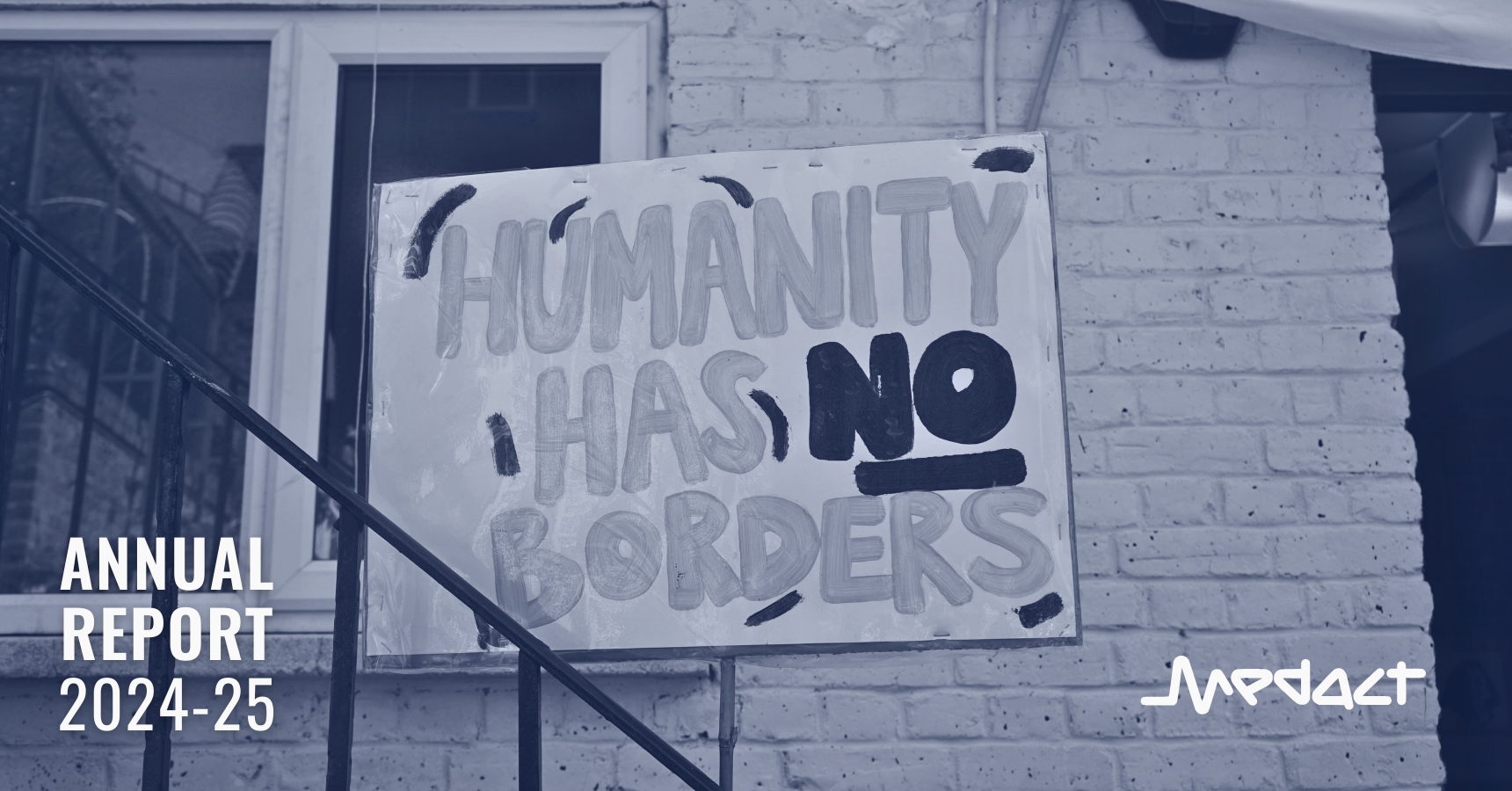
This is the third article published as part of our Annual Report 2024-25
On the 12th August 2021, Henok Zaid Gebrsslasie, aged 23, died whilst detained under the Mental Health Act at a Psychiatric Intensive Care Unit in Coventry. Just 10 days earlier, he had been arrested after being found in extreme distress on a bus. Henok, who fled Eritrea at the age of 14 to escape compulsory military service, arrived in the UK in May 2020 seeking asylum and safety. During his detention in the psychiatric unit, it took nine days before he was with a Tigrinya interpreter. By then, it was tragically too late.
Henok’s death exposes the lethal intersection of violence in policing, borders, psychiatry and a carceral health system that views some lives as expendable. These systems, rooted in the belief that some people are “deserving” of care and others are not, perpetuate violence and harm, particularly toward the most vulnerable. Healthcare, an institution meant to heal, too often becomes a site of violence, perpetuating structures of exclusion, punishment and neglect.
Healthcare as a site of violence
Healthcare cannot be separated from systems of violence such as war, borders and policing. Health is not an individual concern but deeply interwoven with the communities and environments in which we live. The belief that healthcare is a neutral institution obscures its role in reproducing structural violence. The violence of borders, policing and war is inseparable from health. Whether it’s the systemic racism embedded in policing, the trauma of war, or the stress of living under constant surveillance, these forces affect people’s wellbeing every single day.
Medact’s research has shown how policing in particular harms public health by criminalising the very conditions that lead to poor health and suffering. In this context, an integrated abolitionist approach to health offers a transformative framework for achieving health justice – an inclusive vision where care is accessible to all, and violence and oppression no longer define the systems that affect our wellbeing.
Why abolition?
Abolition is often misunderstood as the mere removal of institutions. But abolition is about freedom – not the kind you can buy or grant, but a freedom that is fought for collectively. As Ruth Gilmore, the abolitionist geographer, writes: “Abolition is not absence, it is presence. … Abolition is building the future from the present, in all of the ways we can.” In this sense, abolition is both about dismantling oppressive systems and creating something new – systems of care that truly nurture and support life.
Prisons, borders and the military exist in order to control, exclude and oppress. These systems also cause harm, especially within healthcare. Applying abolition to health means dismantling these violent structures while building new systems that prioritise care, community and social justice. The violence and oppression – from the use of nuclear weapons to the everyday brutality of policing – lead to illness and death. While healthcare must be part of the solution, it cannot function in isolation.
To achieve health justice, we must invest in dismantling the institutions that harm people and replace them with systems that provide universal care, safe housing, education and social support. This dual action – removing violence and building alternatives – is central to the abolitionist approaches to health.
Borders as violence within healthcare
Borders are not just lines on a map; they are mechanisms of structural violence embedded in public services, including healthcare. The government’s “Hostile Environment” policy, which was introduced under Theresa May in 2012, has extended immigration controls into the NHS. This policy involves practices such as NHS charging, data sharing with the Home Office and the denial of healthcare to migrants based on their immigration status.
This system doesn’t just create fear – it actively denies people access to essential care, worsening their health and sometimes leading to death. For example, people like Simba Mujakachi, who woke up from a coma to find himself saddled with £90,000 in medical debt, face both the trauma of illness and the violence of exclusion. In the NHS, healthcare workers are increasingly becoming border guards, and hospitals becoming sites of surveillance, complicit in state violence against migrant communities.
Militarisation, war and everyday violence
While militarisation and war are often seen as extreme forms of violence, they exist on a continuum with everyday state-sanctioned violence. Resources are diverted away from healthcare and social care to fund military operations, policing and border control. The ultimate form of state military violence, nuclear weapons, sits alongside these everyday structures of violence in a continuum of harm. As made clear following the US and Israel attacks on Iran, we must also resist all attempts from global powers to manufacture public consent for militarisation – and attacks on nuclear facilities – under the guise of acting in the interest of security.
Through Don’t Bank on the Bomb! UK, Medact’s Nuclear Weapons Group are working to remove violence inflicted by the nuclear weapons by campaigning for banks to divest from nuclear weapons producing companies. Alongside this, the Abolitionist Approaches to Health group work to resist the violence of policing, criminalisation and securitisation practices within and beyond sites of healthcare.
Towards health justice: reclaiming care
Abolitionist health calls for dismantling violent systems while also building alternatives that sustain life. This vision goes beyond a mere critique of current systems – it offers a concrete alternative. This alternative includes:
- Universal access to healthcare: Everyone, regardless of status or identity, deserves access to care.
- Redirecting resources: We must move resources away from militarisation and policing and instead invest in healthcare, social services and community support.
- Community-based care: Rather than relying on the police to respond to crises, we need to invest in community-led healthcare responses that do not criminalise people in distress.
- Global solidarity: Health justice is a global struggle. Resisting war and borders requires international solidarity and commitment to resisting the systems that harm us all.
Racism, colonialism, war, the military-industrial complex and borders all contribute to health inequity. Abolitionist health justice links these struggles, recognising that liberation is collective – that health cannot coexist with borders, war and militarised societies. We must confront the root causes of violence and oppression, not just treat the symptoms.
By embracing abolition as a framework for health justice, we move closer to a world where care is not a commodity, but a universal right.
Medact Annual Report 2024-25
-
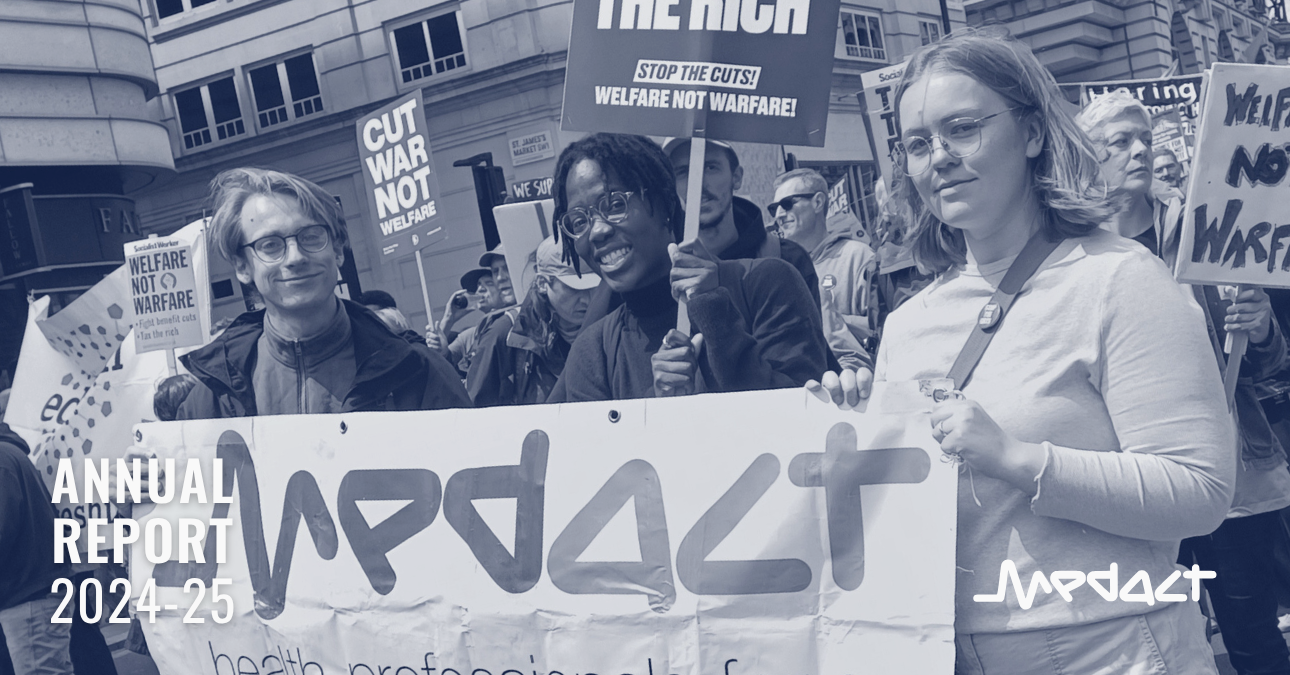
Leading the change from below – building a countervailing power for health justice
-
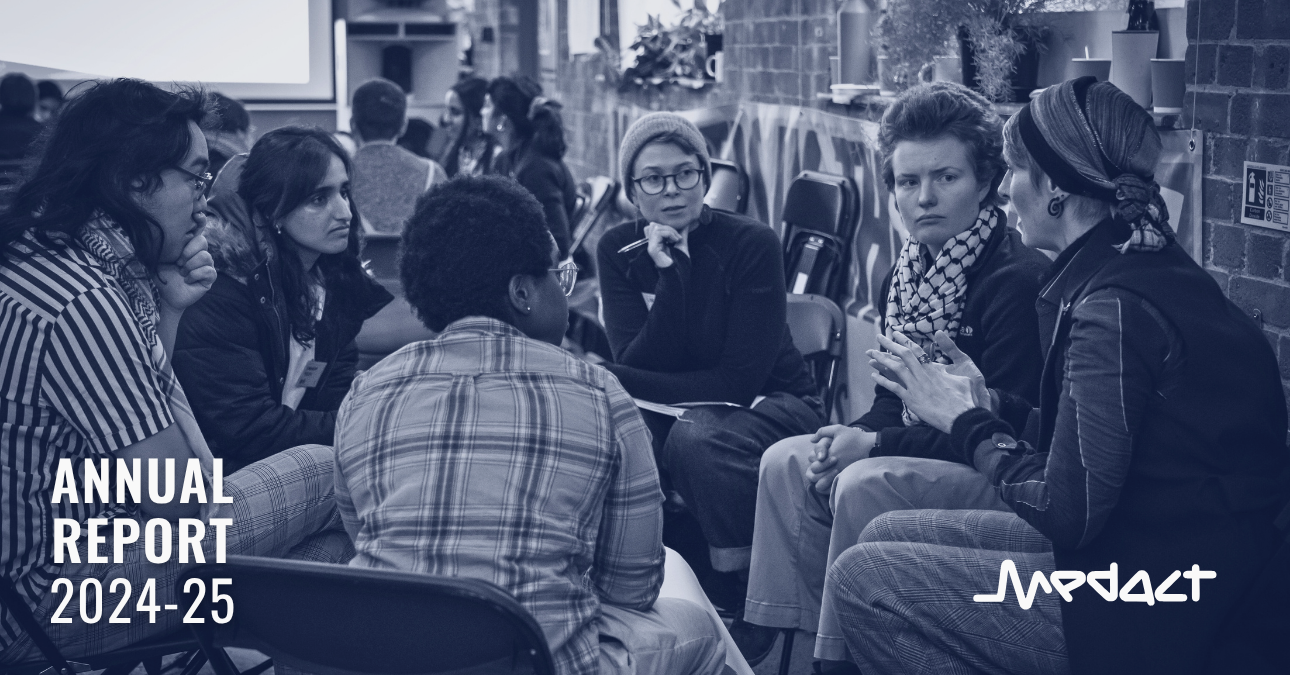
A growing movement for health justice
-
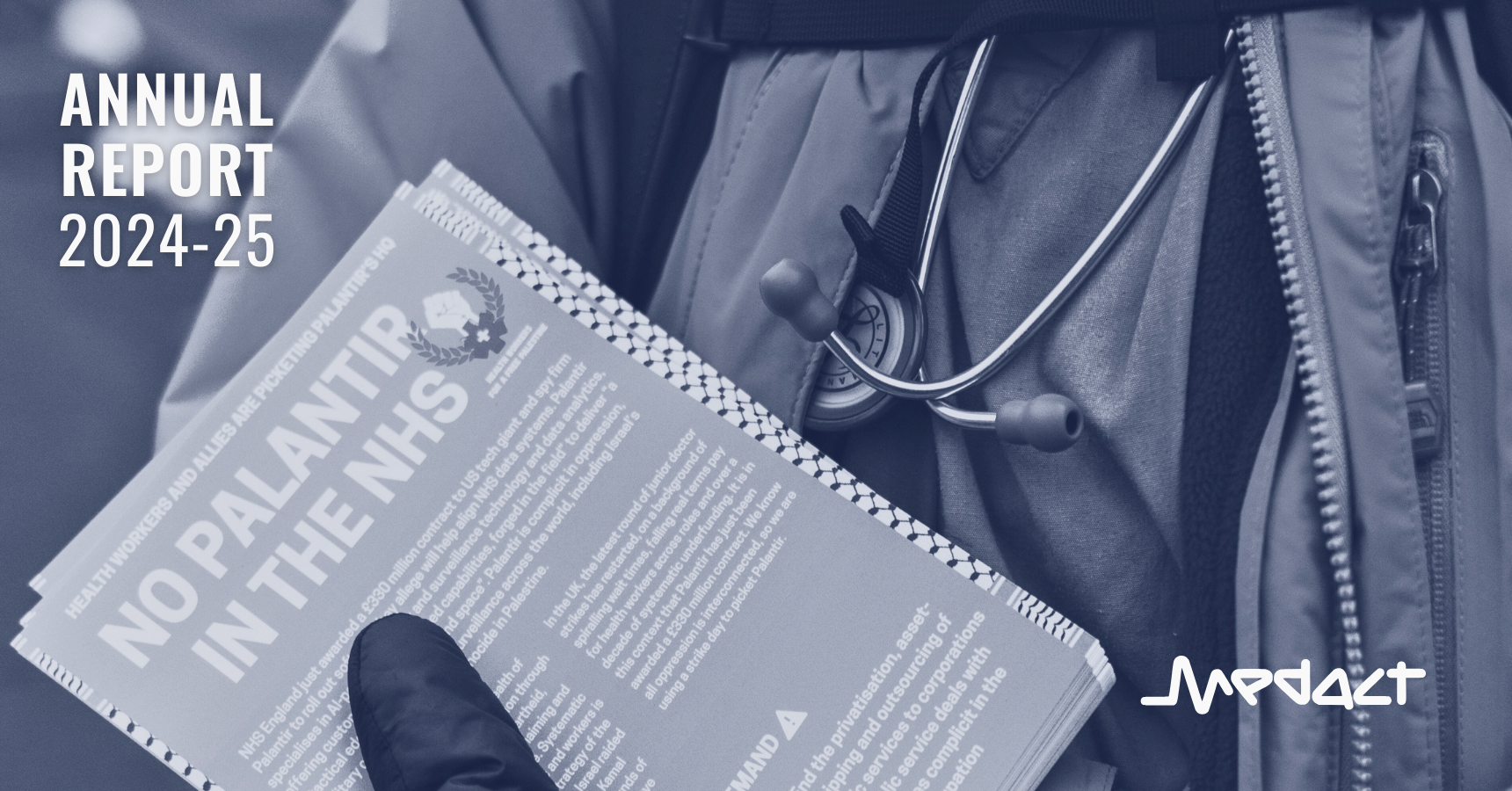
Gaza under siege, health solidarity across the globe
-

Towards abolishing borders and violence in healthcare
-
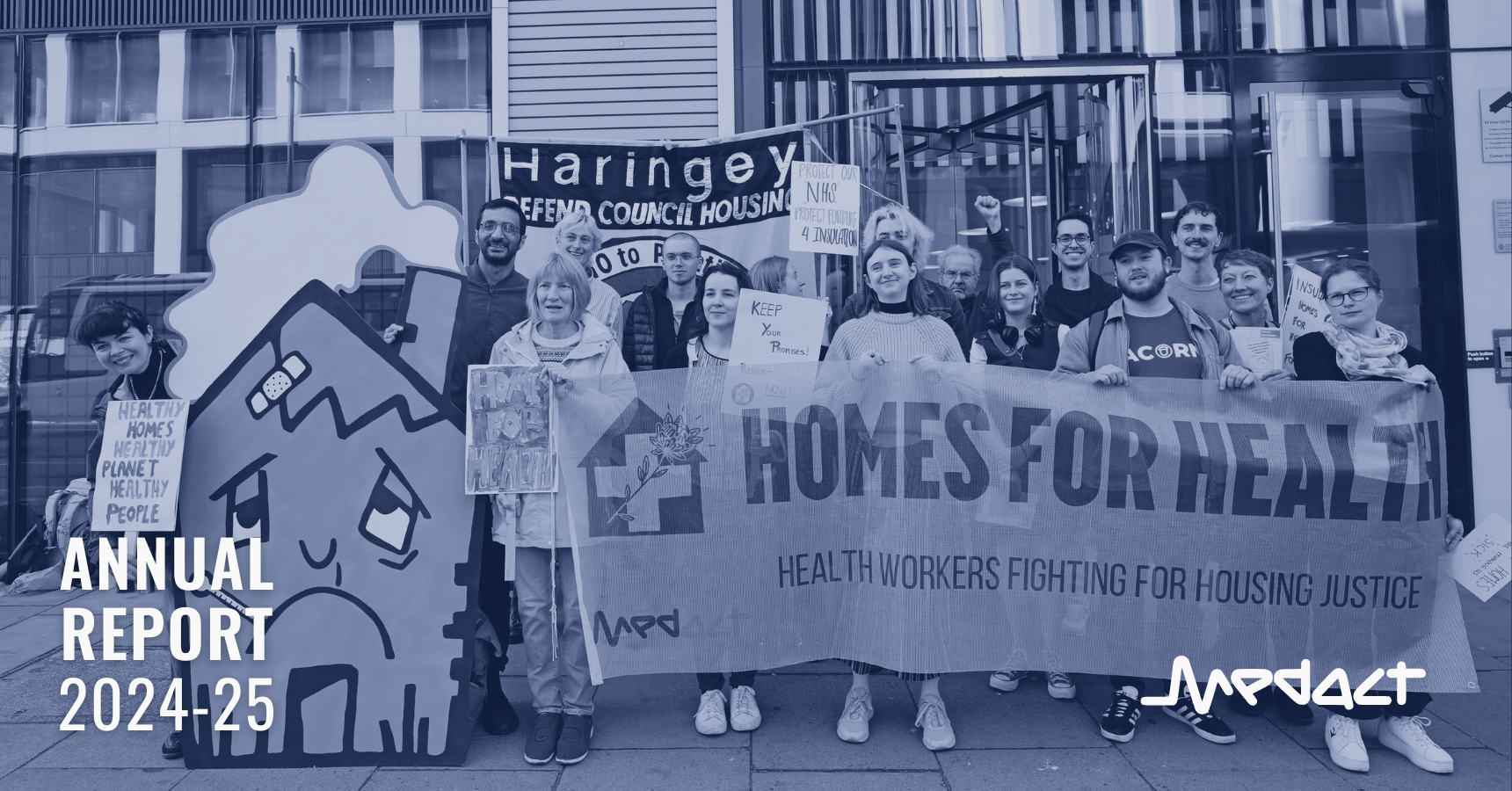
Climate justice means housing and energy justice
-
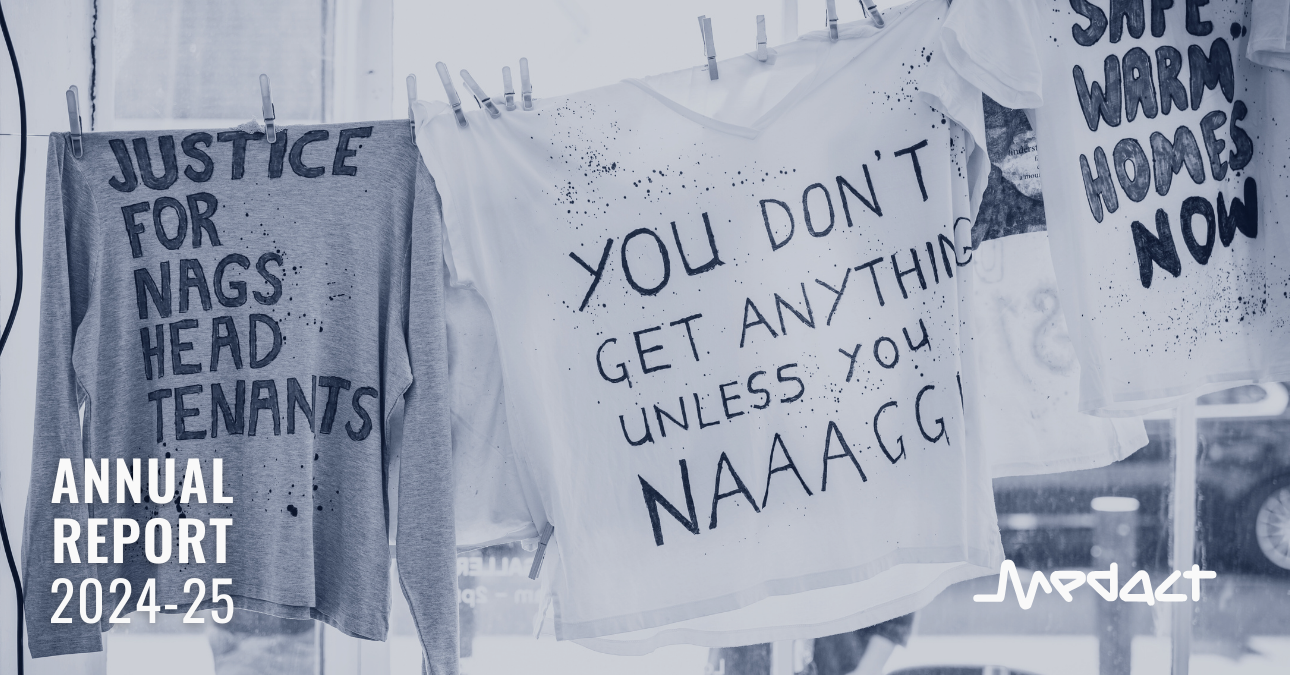
Homes for Health: How we win Health Justice

